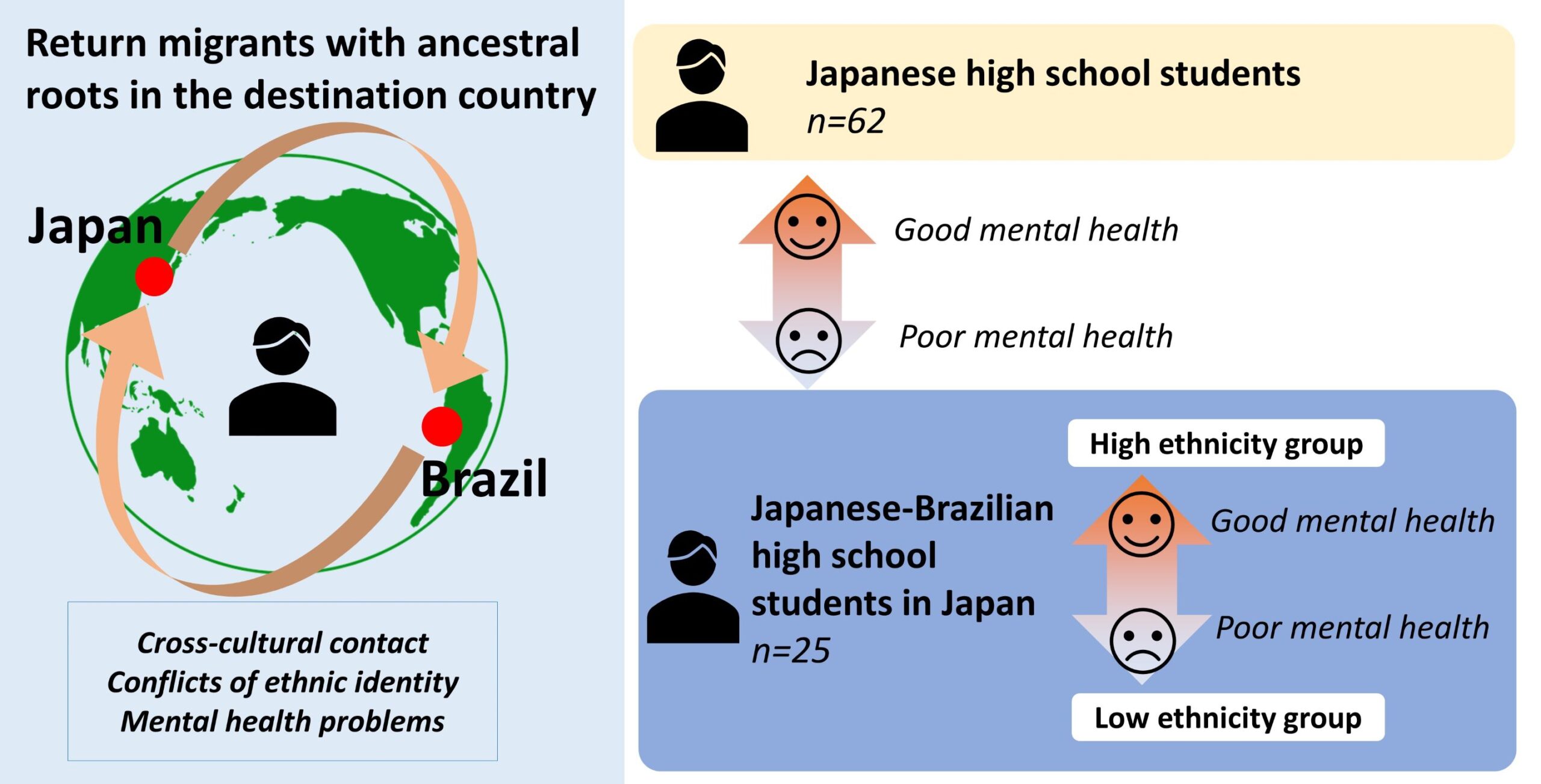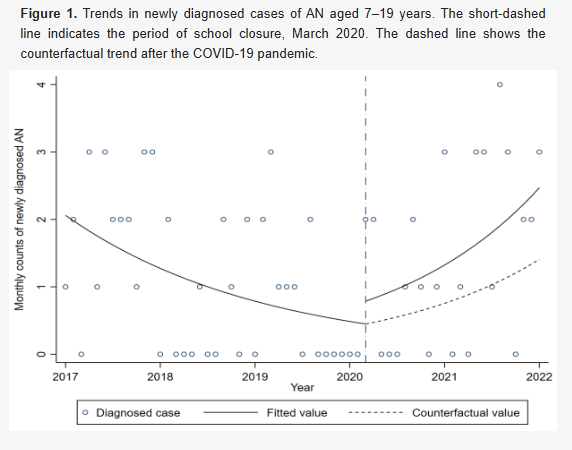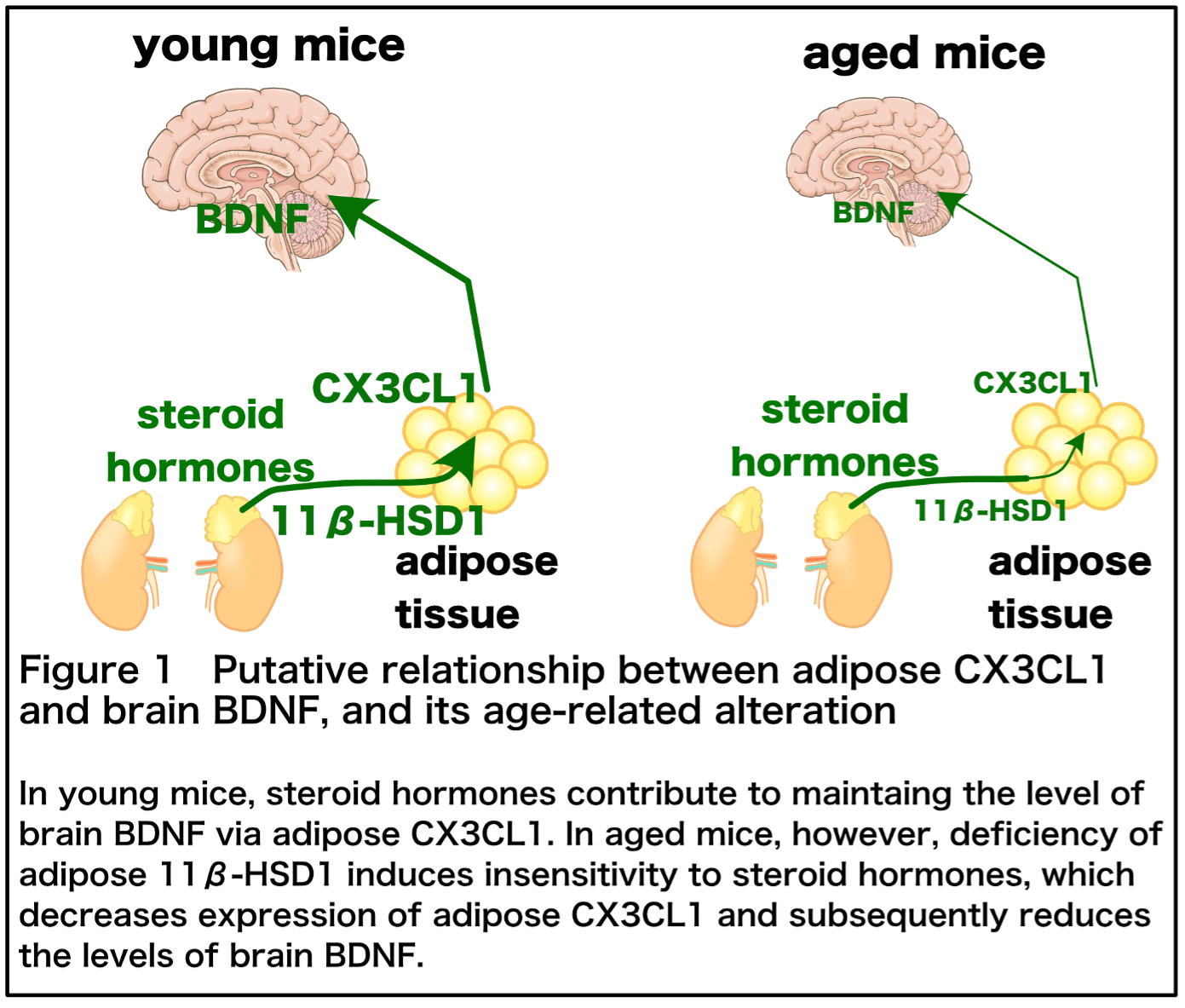November 24, 2022
The Mental Health of Young Return Migrants with Ancestral Roots in their Destination Country and their Ethnic Identity Characteristics

Right: Dr. Eriko Fukui



Right: Dr. Eriko Fukui
Key Points:
- Japanese-Brazilians are migrants with ancestral roots in Japan. Return migrants often experience ethnic identity conflicts and they can have negative impacts on mental health, especially among young people.
- The results of the study showed that Japanese-Brazilian high school students had lower mental health conditions than Japanese high school students, and the low ethnicity group was significantly lower than that in the high ethnicity group. Moreover, Japanese-Brazilians were less likely to seek help from family members and friends.
- Migration to the ancestors’ home country was considered to have had a negative impact on mental health due to further complicate ethnic identity conflicts. This made it difficult to have a sense of belonging, which led to the inability in adapting and accepting two different culture.
- Therefore, the development of community-based, integrated mental health care systems for migrants is important for providing easy access to help. Support to help such individuals develop a healthy ethnic identity may be effective for preventing psychological problems.


Figure 1:Japanese-Brazilian background and mental health compared to Japanese high school students, and the relationship between ethnic identity and mental health
Journal
Journal of Personalized Medicine
Title
The Mental Health of Young Return Migrants with Ancestral Roots in Their Destination Country: A Cross-Sectional Study Focusing on the Ethnic Identities of Japanese–Brazilian High School Students Living in Japan
Authors
Eriko Fukui, Takashi Uchino, Masunari Onozaka, Takashi Kawashimo, Momoko Iwai, Youji Takubo, Akiko Maruyama, Sachio Miura, Ryo Sekizaki, Masafumi Mizuno, Naoyuki Katagiri, Naohisa Tsujino, Takahiro Nemoto* (* corresponding author)
DOI No.
10.3390/jpm12111858
Journal of Personalized Medicine
Title
The Mental Health of Young Return Migrants with Ancestral Roots in Their Destination Country: A Cross-Sectional Study Focusing on the Ethnic Identities of Japanese–Brazilian High School Students Living in Japan
Authors
Eriko Fukui, Takashi Uchino, Masunari Onozaka, Takashi Kawashimo, Momoko Iwai, Youji Takubo, Akiko Maruyama, Sachio Miura, Ryo Sekizaki, Masafumi Mizuno, Naoyuki Katagiri, Naohisa Tsujino, Takahiro Nemoto* (* corresponding author)
DOI No.
10.3390/jpm12111858
READ MORE RESEARCH NEWS - MEDICINE
ACADEMICS
Undergraduate Programs
– Medicine
– Pharmaceutical Sciences
– Science
– Nursing
– Health Science
Graduate Programs
–Medicine
–Pharmaceutical Sciences
–Science
–Nursing
Undergraduate Programs
– Medicine
– Pharmaceutical Sciences
– Science
– Nursing
– Health Science
Graduate Programs
–Medicine
–Pharmaceutical Sciences
–Science
–Nursing
RESEARCH
– News
– Guidelines & Policies
– Support Offices
– Facilities
– Security Export Control
Non-Degree Programs
– Clinical Elective Program
– International Physician Observership Program




